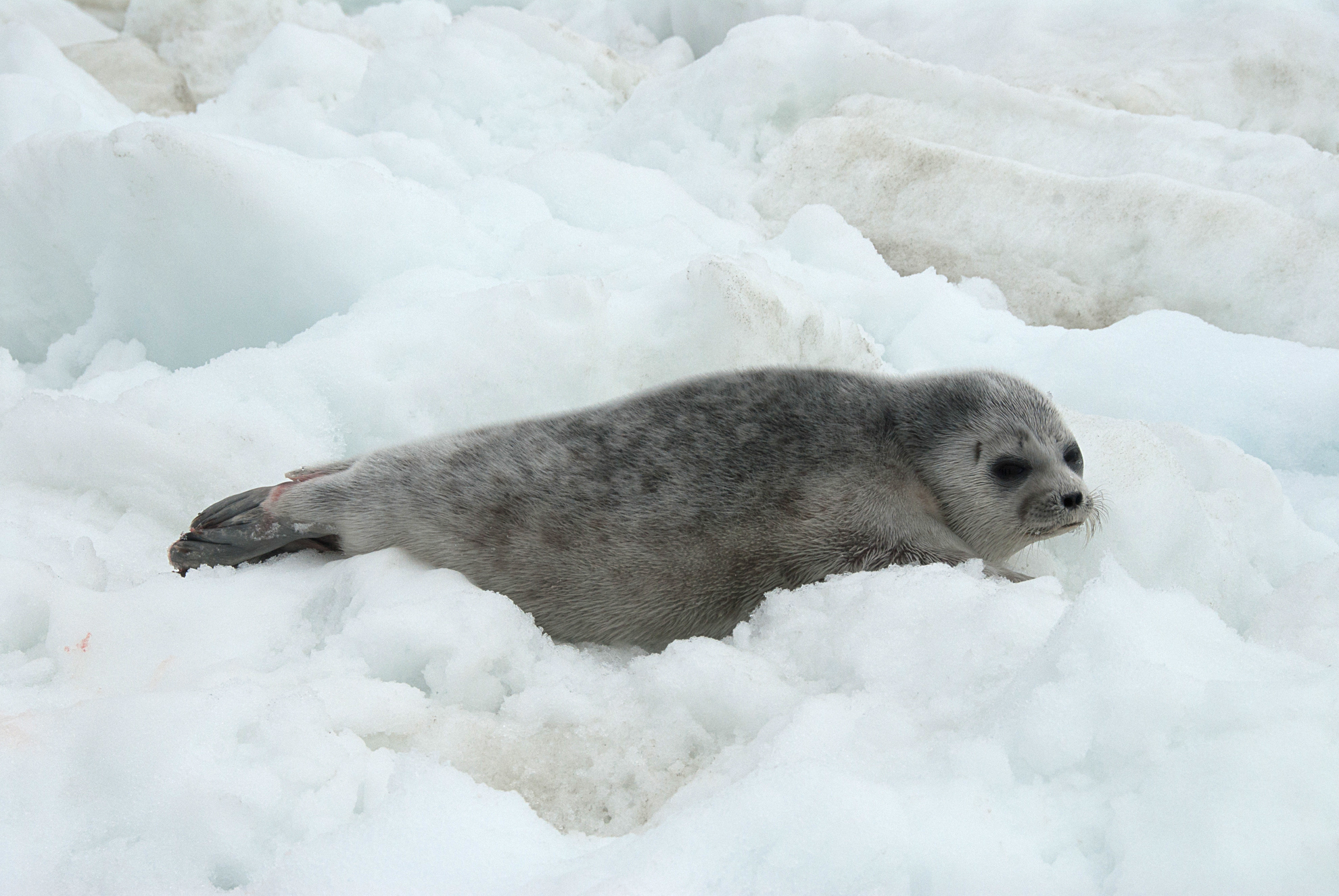Alaska lawsuit seeks to limit environmental protections for some Arctic seals
The animals involved are the Arctic subspecies of the ringed seal and the Beringia population of the Pacific bearded seal.

The state of Alaska filed suit last week against the National Marine Fisheries Service, claiming the agency drew overly large protection areas for two kinds of seals in the Arctic.
If accepted as written by the agency, the protection areas would place additional permitting and regulatory requirements on construction in the region, possibly hampering oil and gas work on the North Slope, the state said.
The animals involved are the Arctic subspecies of the ringed seal and the Beringia population of the Pacific bearded seal.
Both have been listed as “threatened” under the Endangered Species Act since 2012 on the grounds that global climate change is harming their habitat. The 2012 decision followed a similar determination for polar bears in 2008.
An extended series of lawsuits, including some supported by the state, unsuccessfully challenged the seals’ protection, and a state petition to delist the seals also was unsuccessful.
In November, the state and the North Slope Borough filed a new lawsuit seeking to delist the ringed seal as protected. That suit remains pending in U.S. District Court.
The Endangered Species Act requires the federal government to identify “critical habitat” that must be protected in order to protect endangered and threatened species.
In April, the federal government said it would protect the seals in a wide swath of coastal Alaska, an area almost as large as the state of Texas.
If the seals remain listed as threatened, the new case filed Wednesday could determine the boundaries of that critical habitat.
After the federal government confirmed the boundaries in April, the state sent a complaint letter to Commerce Secretary Gina Raimondo and other officials. In that letter, the state called the boundaries “grossly excessive” and said they conflict with a federal law requiring that they be limited to “specific areas.”
The letter noted that while the state has a duty to protect fish and wildlife, it “is also responsible for its citizens’ welfare, including their economic welfare.”
“Unjustified efforts to stop or delay oil and gas exploration and development have a direct negative economic impact on Alaska and its citizens in the form of lost employment and tax revenues,” the state said.
This story was first published by Alaska Beacon and is republished here under a Creative Commons license. You can read the original here.
This article has been fact-checked by Arctic Today and Polar Research and Policy Initiative, with the support of the EMIF managed by the Calouste Gulbenkian Foundation.
Disclaimer: The sole responsibility for any content supported by the European Media and Information Fund lies with the author(s) and it may not necessarily reflect the positions of the EMIF and the Fund Partners, the Calouste Gulbenkian Foundation and the European University Institute.
